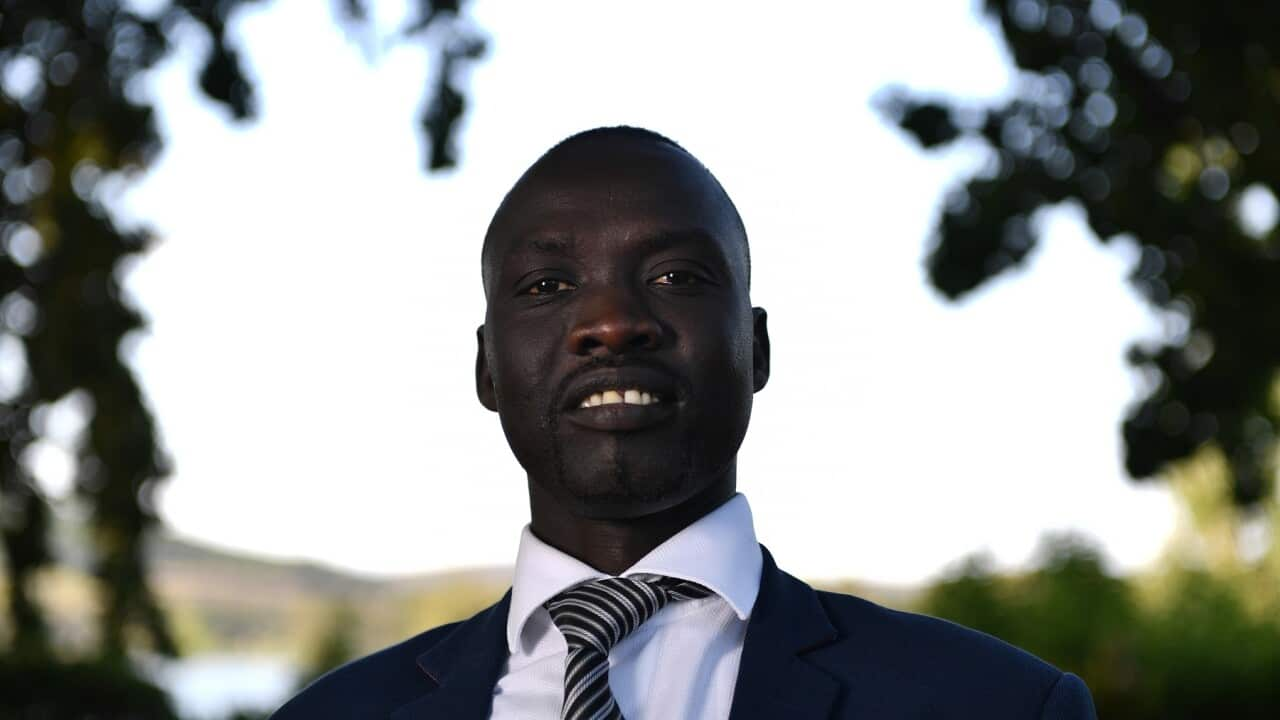Elijah Buol OAM is a former refugee from South Sudan.
He came to Australia as an unaccompanied minor, and today he is a criminologist, and director of Ethnic Communities Council of Queensland.
Mr Buol says the first years of a refugee are never easy.
"Look we always have many rough years, that's always challenging. You know, finding, connecting in the new place. There is cultural shock, different people, there's language barriers. So all those things are challenges that every refugee or migrant who come to the country face."
More than 17,000 refugees are estimated to resettle in Australia in 2023.
But while they prepare to contribute to their new home, refugees are also more likely to struggle with mental illnesses, including anxiety, depression and Post Traumatic Stress Disorder (PTSD) than other migrant young people and their Australian-born peers.
President of the Multicultural Council of the Northern Territory, Dr Edwin Joseph, says this is a directly result of their experiences.
"Especially someone coming from a refugee background, they bring their own story with them, the story that consists of a lot of trauma and stress. So they have an anxiety, depression, and everything they come here when it is a new land, they don't know their rights here. So definitely, they face significant mental health issues compared to their Australian peers."
Advocates say some refugees struggle to even look for help, largely because of socio-demographic factors such as poor mental health literacy, mixed cultural understandings of mental illness, and stigmas.
They say these influences can significantly impact refugees' ability to integrate into a new country - and can cause cycles of intergenerational trauma.
Dr Joseph says they can become isolated even within the refugees' own communities.
"Sometimes they feel themselves as second class citizens. It take a while for them to integrate into the community. Even some of the people face some kind of discrimination from their own community as well, because they come as refugees."
Despite past trauma and settlement challenges some of the most likely causes for refugees' mental health challenges, there is currently limited research to determine why this is the case, and how young refugees can be better supported.
A new $800,000 research project is looking to change that.
The research will explore the prevention, early intervention, and management of young refugees’ mental health, and develop a framework for improving their lives.
Flinders University’s Associate Professor Anna Ziersch is the leader of the research.
"Our goal is to really harness community resources and strengths and the information that we've got to look at developing a framework to look at prevention support, and ongoing programs."
The Professor says the research will have a particular focus on young refugees aged from 12 to 25.
"That's kind of a key point of people's development, and is where a lot of kind of cognitive development is laid down. And a sense of identity and autonomy is developed over that time period. So we, we know more about adults. And obviously, dealing with younger children as a separate kind of projects in terms of the ethics and some of the issues about capturing those experiences. But the 12-25 is an opportunity to start to talk to young people themselves about their experiences, and get and capture it directly from them."
The national collaboration involves 12 key refugee, mental health and community organisations.
It will also engage with community and religious leaders to ensure the new recommendations consider young people’s lives in the context of their community.
Professor Ziersch again.
"What we're wanting to do is develop a tool for service providers to use with young people to capture some of this information that they might need to know about a young person to know what supports are in place. So it's a social health screening tool. So what might what might a practitioner whether it be a GP, a mental specialist, mental health service, or a community organisation. That is the key outcome that we're hoping to be able to disseminate so that there is that tool for people working with young people from refugee backgrounds."
Elijah Buol says he has made a very successful life for himself in Australia since his early arrival.
He says with the right help, a successful outcome is possible for many more.
"We talk about healing in trauma, and mental health. It's about that healing journey and healing journey. You have to connect with people who will be there alongside you, to support you to listen to you. And I think listening, and also to understand the the stigma that is connect with that, to simplify it and to normalise the trauma, and the stigma tied to it. I think that the journey that I went through, and I was able to really manage to be where I am today."













